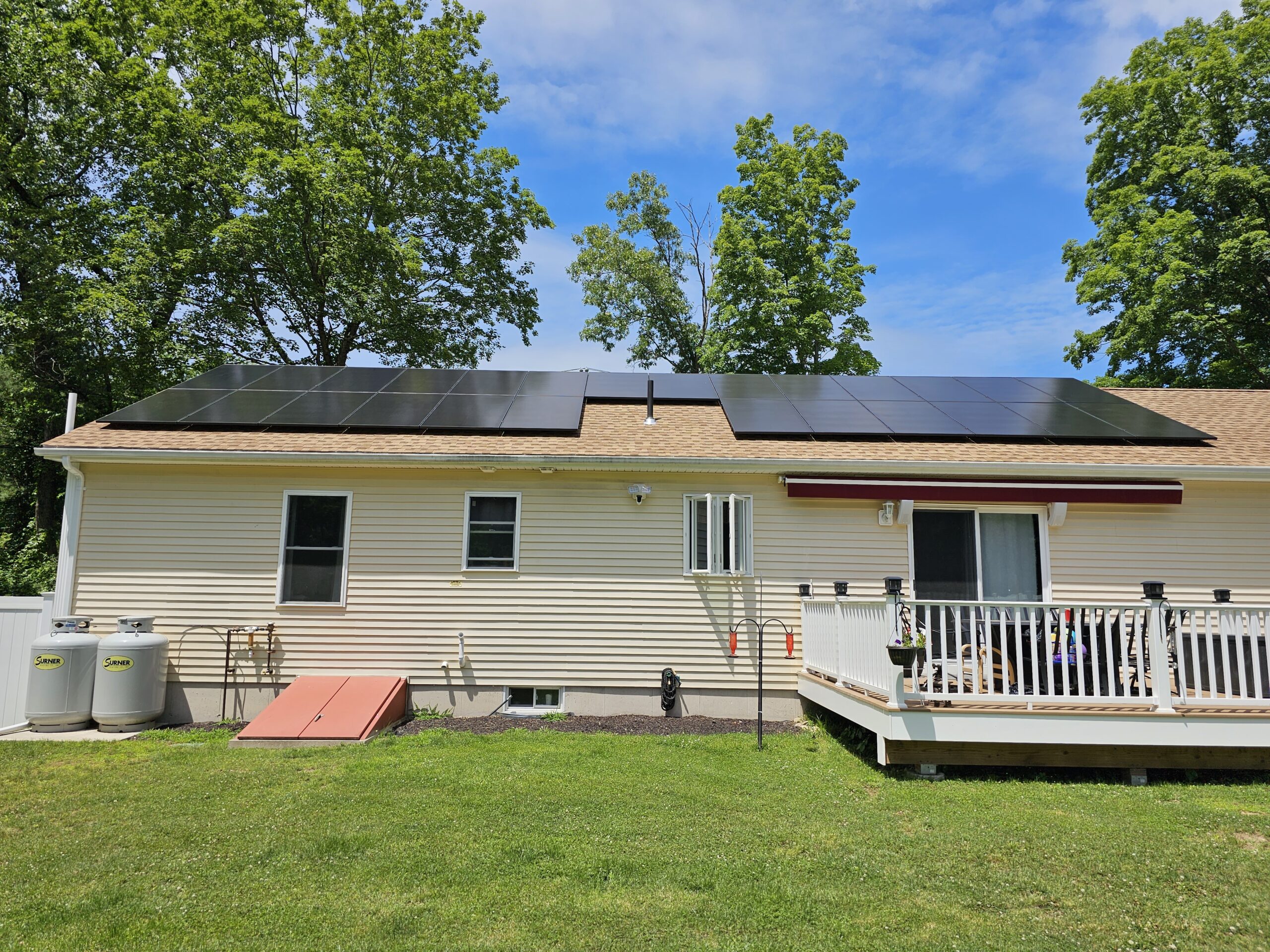Massachusetts solar incentives
residential Solar Installation
New England Solar + Green has the most up to date information on state and federal tax incentives available for your solar installation. We handle the paper work from applying to state incentive and rebate programs to outlining the savings from the solar generation.
Net Metering


Tax Incentives
The Investment Tax Credit (ITC), a solar tax credit offered by the federal government, enables businesses and homeowners to write off a portion of their solar expenses against their taxes. Both homeowners and businesses qualify for a federal tax credit equal to 30% of the cost of their solar installation minus any cash rebates for the fiscal year.
Massachusetts has an income tax credit for installing solar renewable energy systems at the customer’s primary residence. This credit is 15% of the cost of the PV array, up to a maximum of $1,000. Additionally, there is no sales tax on the solar installation, and property taxes are often increased in most towns.
MA SMART
(Solar Massachusetts Renewable Target)
The SMART program has a block structure that dictates the incentive amount you will receive. As more people install solar panels, a block will fill up towards a predetermined threshold, measured in megawatts of solar panel capacity. The incentive is lowered for anyone who switches to solar power after the barrier is crossed. Each block is 200 megawatts (MW) of solar installations, and the value of the incentive declines by four percent between each. The additional incentive amount or the amount you will receive from the SMART program depends on a number of factors, including the type and size of solar panel installation, the amount of solar energy you produce, and the block for which you are eligible.
For a normal residential solar panel installation, your additional incentive amount will be equal to the baseline incentive value (decided by your block) minus the value of energy (provided via net metering credits).
Here is an example scenario to help illustrate how the incentive is calculated. John is a customer who has a 10-kW solar array installed. The baseline incentive for Block 1 is $0.34 per kWh. At the time of the installation, the cost of electricity is $0.20 per kWh. $0.14 per kWh of solar production over the course of 10 years:
Added incentive rate = baseline incentive rate ($0.34) – the value of energy ($0.20) = $0.14
This extra incentive rate will remain fixed for the duration of the program for solar panel systems that are installed behind the meter (i.e., directly serving a property’s energy demand). Given the typical output numbers in Massachusetts for a 10 kW system, John will earn around $16,800 from the SMART program over a ten-year period. In addition to the base incentive amount, the SMART program provides incentives for specific installation types. These adders boost the per-kWh incentive for installing a solar canopy, utilizing energy storage, constructing a system on a landfill, and other novel solar systems.
Unlike the net metering credit, the utility pays the MA SMART program incentive directly to the solar customer on a monthly basis.



